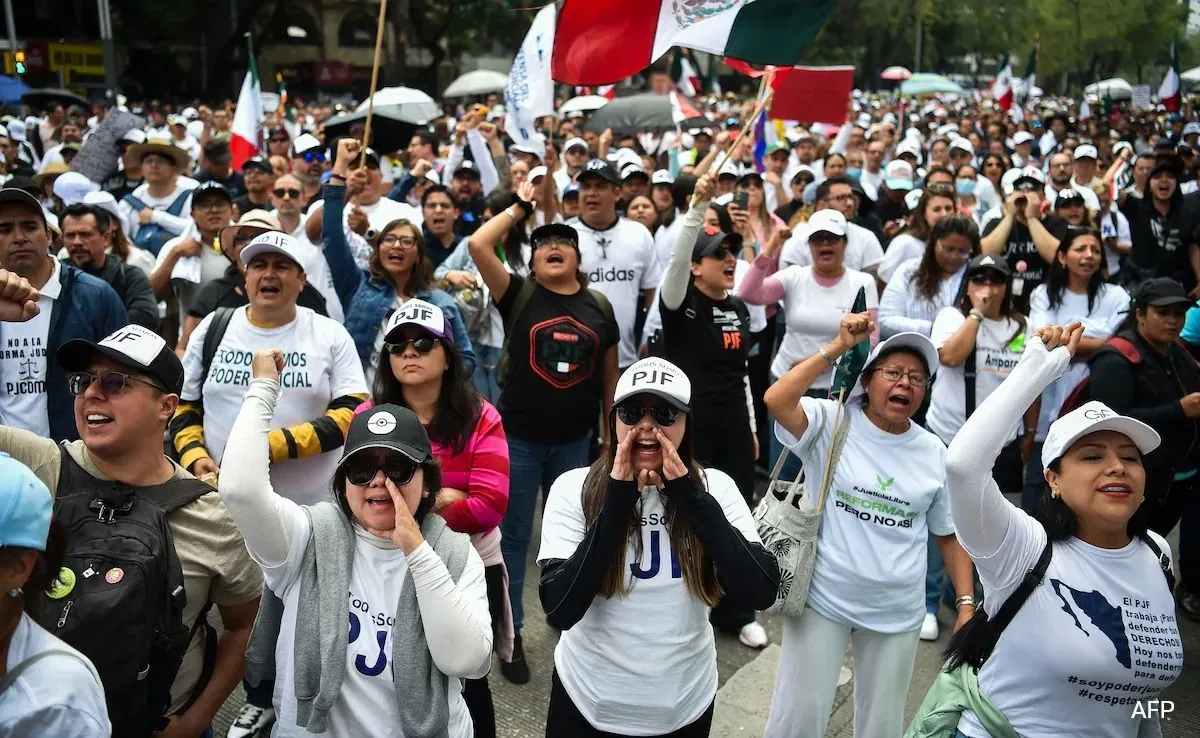Mexico Approves Controversial Judicial Reform Amid Protests
Mexican lawmakers pass a judicial overhaul allowing popular election of judges, sparking protests and criticism. The reform, backed by President López Obrador, faces concerns over judicial independence and democratic checks.

Mexican legislators have approved a significant judicial reform, allowing for the popular election of judges at all levels, a move that has sparked intense debate and protests. The approval came after a tumultuous session that saw demonstrators storm the debate chamber, forcing lawmakers to change venues.
Andrés Manuel López Obrador, Mexico's president, initiated this judicial overhaul in the final month of his six-year term. The reform represents a major shift in Mexico's legal system, which has been based on civil law tradition since the adoption of the 1917 Constitution.
Supporters of the reform, including Ricardo Monreal, leader of the ruling Morena party in the lower house, argue that it will enhance democratic accountability in the judiciary. However, critics warn that this change could undermine the system of checks and balances and potentially strengthen the ruling party's influence over the courts.

The approval process was marked by dramatic scenes. On Tuesday night, protesters flooded the Senate building, waving Mexican flags and chanting "traitors" at lawmakers supporting the reform. Security personnel used tear gas to disperse the crowd. In response, legislators moved to a sports complex to continue the session, where they voted 359 to 135 in favor of the proposal.
This reform is part of a series of changes implemented by López Obrador's administration. In February, major protests erupted in Mexico City after he proposed dissolving the agency responsible for organizing elections. These actions have led to accusations of the president overstepping democratic processes, despite his popularity due to left-wing populist measures like generous pension programs.
Claudia Sheinbaum, the president-elect, defended the changes, arguing they will ensure trust in a system long plagued by corruption and nepotism. Indeed, Mexico has faced significant challenges with judicial corruption, prompting various anti-corruption measures in recent years.
Critics, including opposition lawmakers and legal experts, acknowledge the need for reform but warn of potential consequences. Patricia Flores, a lawmaker from the opposition Citizens' Movement party, described the reform as "an act of revenge" against the judiciary for acting as a counterweight to presidential decisions.
"This would become a tool of political persecution. Judges could be told to make rulings in favor of the government under threat of being removed from their positions."
Legal experts caution that the scale of the overhaul could lead to significant short-term problems. Juan Jesús Garza Onofre, a constitutional law researcher at the National Autonomous University of Mexico, warned of potential delays in ongoing processes and a learning curve that could result in "very bad rulings" initially.
The reform has also drawn international attention. In August, Ken Salazar, the US ambassador to Mexico, described it as a "major risk to the functioning of Mexico's democracy," leading to a temporary pause in relations between the Mexican government and the US embassy.
As Mexico moves forward with this unprecedented change to its judicial system, the country faces a critical period of adaptation and scrutiny. The success or failure of this reform will likely have far-reaching implications for Mexico's democratic institutions and its standing in the international community.


































